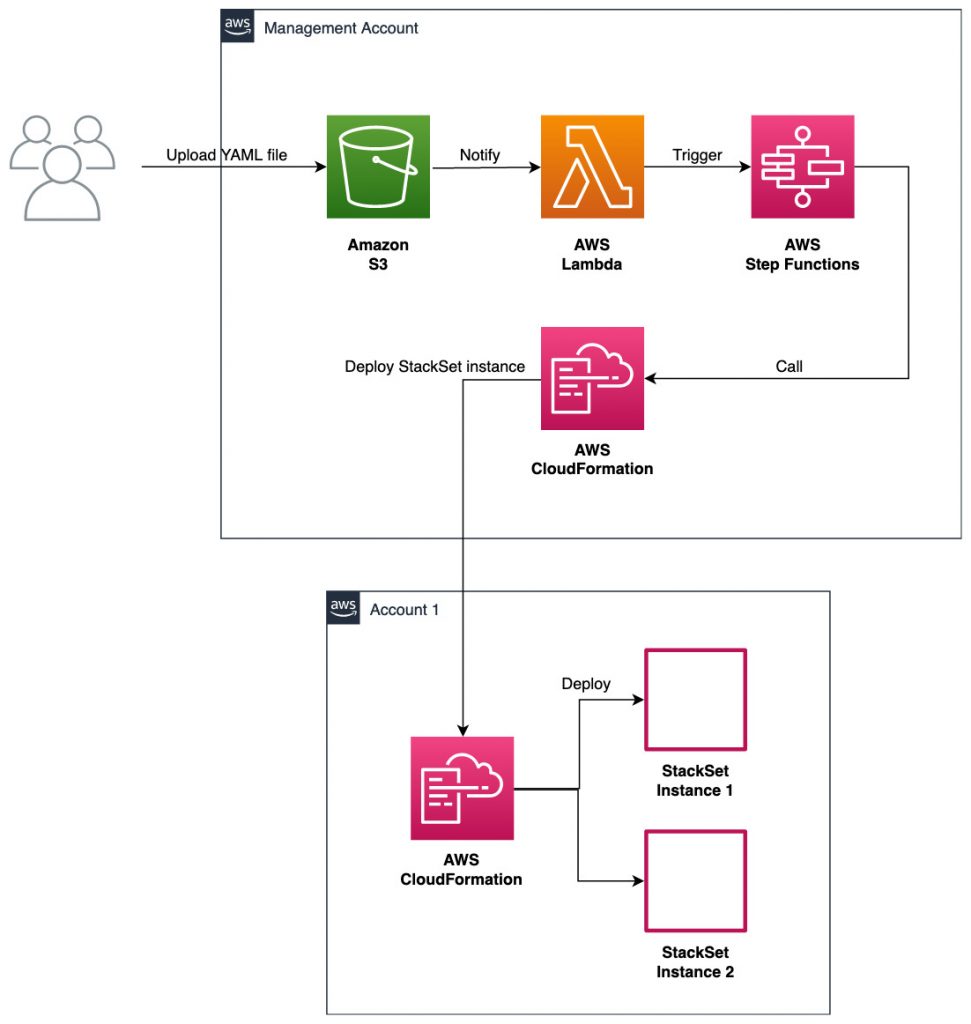AWS Cloud Operations Blog
Category: Application Services
Field Notes: Cross-account deployments in an AWS Control Tower environment
AWS Control Tower helps customers put an orchestration layer on top of a multi-account strategy. When customers build applications, they often use separate accounts as part of a deployment pipeline so that they can validate changes before production. This best practice helps reduce blast radius should there be any issues with newer iterations. With AWS […]
Monitor API Gateway endpoints with Amazon CloudWatch Synthetics
Monitoring the health of your API endpoints is important to understand the overall health of your workloads. You can use Amazon CloudWatch Synthetics to monitor your API endpoints and understand the overall health of your workloads. CloudWatch Synthetics canaries allow you to monitor API endpoints by creating HTTP steps and configuring the request type, endpoint URL, […]
Migrating to Amazon API Gateway: A Datalex success story
Datalex is an industry leader of omni-channel retail solutions for airlines around the world. The Datalex product portfolio supports end-to-end retail capabilities that include pricing, shopping, and order management. This year, Datalex’s multi-year deal with their API provider was up for renewal. As part of a best practice review, they considered other options. When the […]
Cloud Native Application Monitoring for AWS
This blog post will show you how DXC used AWS management tools and services to create a custom cloud native application monitoring framework. DXC made this advanced monitoring offering available to their customers, which resulted in improved customer satisfaction. The business driver DXC has a robust set of tools and capabilities to solve customers’ application […]
Mphasis rearchitects a legacy application to a serverless cloud-native architecture on AWS
Mphasis thrives on business agility and resilience. Its internal operations, especially the core development processes and supporting functions such as sales, client servicing, finance, and administration, are fueled by multiple in-house business applications. For a company to showcase its digital prowess, empower its workforce to innovate, and stay at the cutting edge of technology, these […]
Manage Control Tower life cycle actions intelligently using AWS Service Catalog, AWS Config, Amazon DynamoDB and AWS CloudFormation
As customers create and manage multi-account AWS environments, cloud administrators need to process where each account can apply configuration autonomously from a centralize configuration repository. Some of the customers I work with use AWS Control Tower to manage a multi account environment. Administrators use AWS Control Tower to create organization units for account grouping and […]
Distributed Tracing using AWS Distro for OpenTelemetry
More and more applications are being developed using serverless architectures with multiple microservices. Customers use managed AWS services including AWS Lambda, Amazon ECS and Amazon EKS running on Amazon Elastic Compute Cloud (EC2) and AWS Fargate for running their code along with services like Amazon API Gateway, Amazon SNS, Amazon SQS, Amazon DynamoDB, Amazon S3, and others. Developers use multiple […]
AWS CloudFormation StackSet Orchestration: Automated deployment using AWS Step Functions
We often use AWS CloudFormation StackSets to automatically deploy infrastructure into many different accounts. Whether they are managed by AWS Control Tower or AWS Organizations, StackSets provide a simple and automated way to handle the creation of resources and infrastructure right after provisioning a new account. You can automatically deploy StackSets to accounts that belong […]
Instantly monitor serverless applications with AWS Resource Groups
Serverless computing allows you to build and run applications without thinking about servers. Building serverless applications means that your developers can focus on their core product instead of worrying about managing and operating servers. This reduced overhead lets developers reclaim time and energy that can be spent on developing great products that scale and are reliable. […]
Tracking software licenses with AWS Service Catalog and AWS Step Functions
Enterprises have many business requirements for tracking how software product licenses are used in their organization for financial, governance, and compliance reasons. By tracking license usage, organizations can stay within budget, track expenditures, and avoid unplanned true-up bills from their vendors’ true-up processes. The goal is to track the usage licenses as resources are deployed. […]









